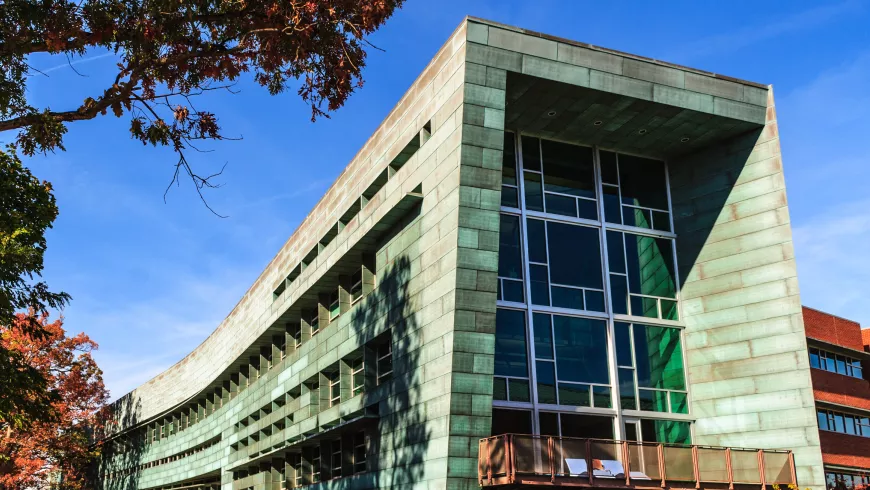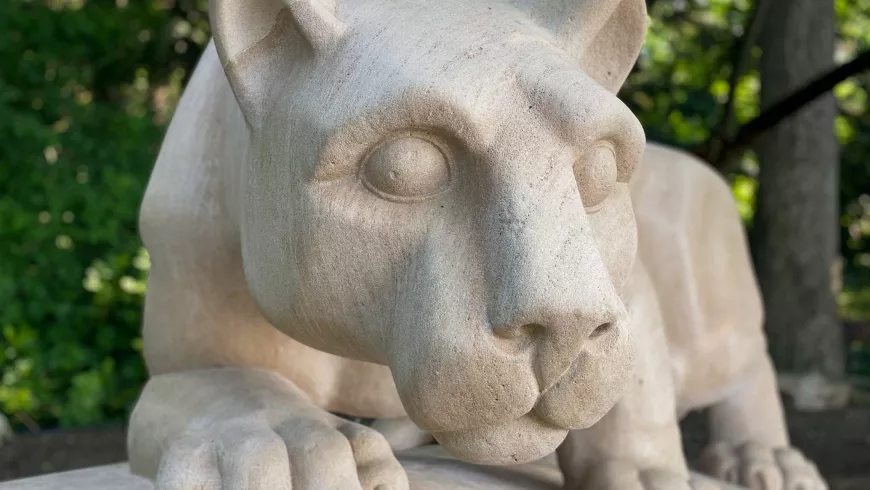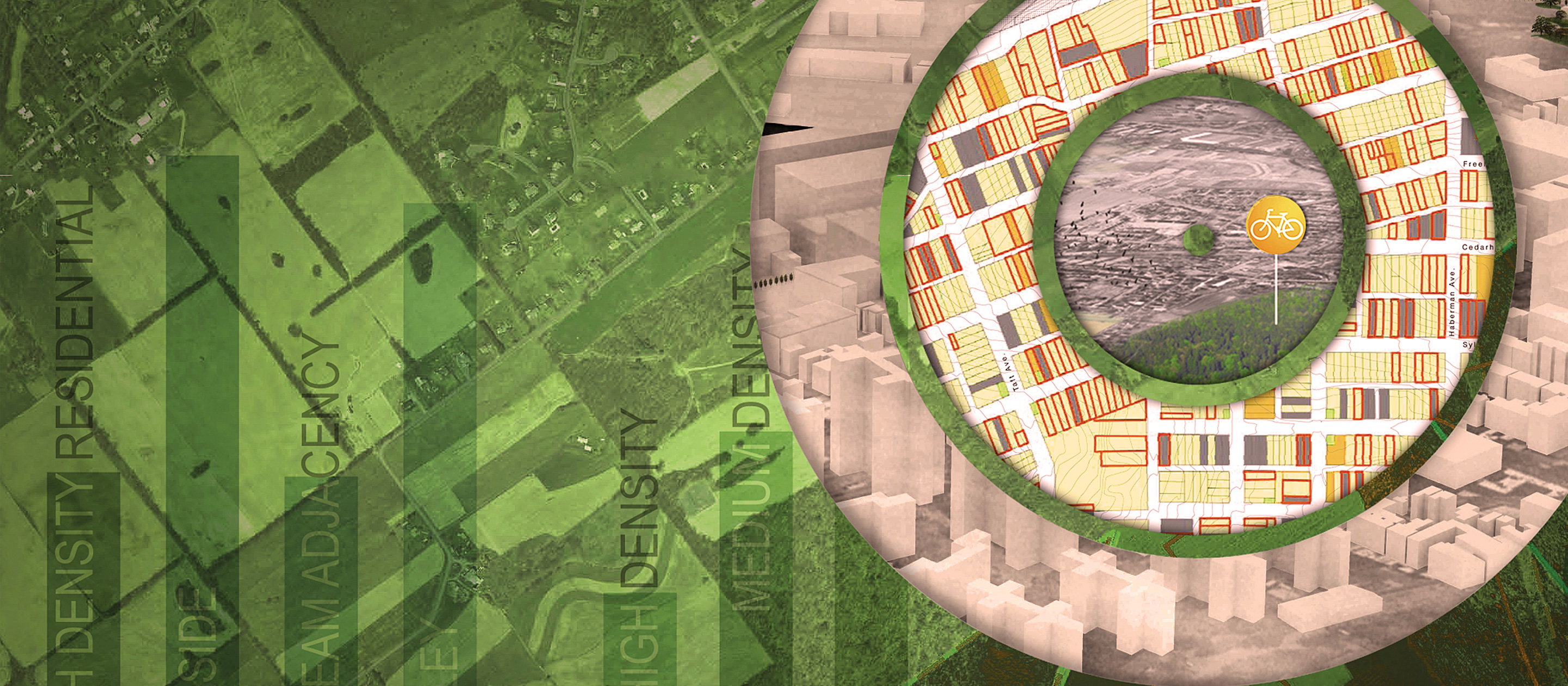100% Online
Complete your Penn State course work at your own pace and 100% online.
Application deadline
Credits and costs
Gain Geodesign Skills to Impact Future Environmental Development
Lead the design of sites, developments, and regions to achieve ecological sustainability, economic viability, and social relevancy.
Develop successful geoprocessing workflows to analyze and assess building and development impacts on the natural and cultural environment.
Combine design- and science-based analysis and solution synthesis to ascertain opportunities for successfully managing resources, anticipating change, and imagining alternative futures.
Collaborate with and create multidisciplinary teams to develop geospatial models for development and conservation.
Online Geodesign Courses
Online Geodesign Courses
The 35-credit Master of Professional Studies (MPS) in Geodesign can prepare you to take leadership roles that address complex environmental design problems in settings ranging from urban design to conservation planning.
Courses in our geodesign program can help you be ready to capitalize on the power of spatial knowledge and evolving technologies to better inform geodesign. You can be well-positioned to assist communities in designing positivie futures.
Program Flexibility
All geodesign (GEODZ) courses operate on 8-week terms except for our studio courses. The studio courses will run for the full 14-week semester. Our geography (GEOG) courses operate on 10-week terms. Two course terms will be offered in the fall and spring and one in the summer. With two sessions being offered in fall and spring, and one session in the summer, some courses may overlap. However, this term structure provides you with the greatest flexibility possible in completing your degree at your preferred pace. You can choose to schedule your courses without any overlap, or take as many courses as possible to finish sooner.
Required Courses (21 credits)
- 3credits
Students study the theory and principles of geospatially based design by investigating the methods and collaborative nature of the geodesign process.
- Prerequisite
GEOG 482 (Please contact the program to discuss waiving this requirement.)
- 3credits
The principles, inherent values, and practical applications of evaluation and decision models as implemented within the geodesign framework.
- Prerequisite
GEODZ 511
- 3credits
The principles, inherent values, and practical applications of process and impact models as implemented within the geodesign framework.
- Prerequisite
GEODZ 822
- or:3credits
The principles, inherent values, and practical applications of representation and change models as implemented within the geodesign framework.
- Prerequisite
GEODZ 822
- 3credits
Problems-based workshop where students apply geodesign process, in a collaborative setting, to regional-scale landscape change and land planning topics.
- Prerequisite
GEODZ 824 or GEODZ 826
- 6credits
Problems-based workshop where students apply geodesign process, in a collaborative setting, to urban-scale landscape change and land planning topics.
- Prerequisite
GEODZ 842
Geography Elective Courses
You are required to take at least 8 credits of geography courses at the 400 level or higher. Based on your experience in geographic information systems, you and your academic adviser will determine which GEOG electives will best meet your needs and interests. GEOG 482 and 483 are recommended for those individuals without GIS experience. View all GEOG electives available through World Campus.
Culminating Capstone Experience (6 credits)
- 3credits
Preparation and peer-review presentation of proposal for an individual capstone geodesign project.
- Prerequisite
GEODZ 852
- 3credits
Preparation and dissemination of geodesign capstone project results in a formal professional venue.
- Prerequisite
GEODZ 596A
Course Availability
If you're ready to see when your courses will be offered, visit our public LionPATH course search (opens in new window) to start planning ahead.
Advance Your Career

Advance Your Career
You can use the knowledge gained from this program and the support of Penn State career resources to pursue careers in a variety of fields, depending on your goals.
Job Titles Related to This Degree
The following roles are often held by people with this type of degree:
- Green Building Design Specialist
- Sustainable Communities Designer
- Sustainable Design Consultant
- Urban Design Consultant
Employment Outlook for Occupational Fields Related to This Degree
Estimates of employment growth and total employment are provided by the U.S. Bureau of Labor Statistics and are subject to change. While these occupations are often pursued by graduates with this degree, individual outcomes may vary depending on a variety of factors. Penn State World Campus cannot guarantee employment in a given occupation.
Architects, Except Landscape and Naval
Urban and Regional Planners
Career Services to Set You Up for Success

From the day you're accepted as a student, you can access resources and tools provided by Penn State World Campus Career Services to further your career. These resources are beneficial whether you're searching for a job or advancing in an established career.
- Opportunities to connect with employers
- Career counselor/coach support
- Occupation and salary information
- Internships
- Graduate school resources
Ready to Learn More?
Get the resources you need to make informed decisions about your education. Request information on this program and other programs of interest by completing this form.
Ready to take the next step toward your Penn State master's degree?
Costs and Financial Aid
Costs and Financial Aid
Learn about this program's tuition, fees, scholarship opportunities, grants, payment options, and military benefits.
Costs and Financial Aid
Graduate Tuition
Graduate tuition is calculated based on the number of credits for which you register. Tuition is due shortly after each semester begins and rates are assessed every semester of enrollment.
2024–25 Academic Year Rates
| How many credits do you plan to take per semester? | Cost |
|---|---|
| 11 or fewer | $1,027 per credit |
| 12 or more | $12,325 per semester |
2025–26 Academic Year Rates
| How many credits do you plan to take per semester? | Cost |
|---|---|
| 11 or fewer | $1,037 per credit |
| 12 or more | $12,448 per semester |
Financial Aid and Military Benefits
Some students may qualify for financial aid. Take the time to research financial aid, scholarships, and payment options as you prepare to apply. Federal financial aid may only be used to pay for credits used to satisfy program requirements.
Military service members, veterans, and their spouses or dependents should explore these potential military education benefits and financial aid opportunities, as well.
Additional Cost of Attendance Details
To view the detailed list of cost of attendance elements:
- visit the Tuition Information site
- click the plus sign to expand the table
- select a semester from the World Campus row
Technical Requirements
Review the technical requirements for this program.
Take Advantage of Flexible Course Scheduling
Take Advantage of Flexible Course Scheduling
As a complement to the challenging, but rewarding, curriculum, the online courses provide you with the flexibility and convenience to study around your own schedule without sacrificing quality.
Geodesign (GEODZ) courses operate on eight-week terms (except for studio courses).
Studio courses run for the full 14-week semester.
Geography (GEOG) courses operate on 10-week terms. Two course terms will be offered in the fall and spring and one in the summer.
NOTE: With two sessions being offered in fall and spring, and one session in the summer, some courses may overlap. However, this term structure provides you with the greatest flexibility possible for completing your degree at your preferred pace. You can choose to schedule your courses without any overlap or take as many courses as possible to finish sooner.
Finish Your Master’s Degree in about Two Years
When you are looking to finish your program as quickly as possible or balance your studies with your busy life, Penn State World Campus can help you achieve your education goals. Students in our graduate geospatial programs typically take one course per 10-week term.
Convenient Online Format
This program's convenient online format gives you the flexibility you need to study around your busy schedule. You can skip the lengthy commute without sacrificing the quality of your education and prepare yourself for more rewarding career opportunities without leaving your home.
A Trusted Leader in Online Education

Penn State has a history of more than 100 years of distance education, and World Campus has been a leader in online learning for more than two decades. Our online learning environment offers the same quality education that our students experience on campus.
Information for Military and Veterans

Are you a member of the military, a veteran, or a military spouse? Please visit our military website for additional information regarding financial aid, transfer credits, and application instructions.
How to Apply to Penn State

How to Apply to Penn State
Apply by July 10 to start August 18
Application Instructions
Deadlines and Important Dates
Complete your application and submit all required materials by the appropriate deadline. Your deadline will depend on the semester you plan to start your courses.
Fall Deadline
Apply by July 10 to start August 18Spring Deadline
Apply by October 10 to start January 12Summer Deadline
Apply by April 1, 2026, to start May 18, 2026
Steps to Apply
For admission to the J. Jeffrey and Ann Marie Fox Graduate School, an applicant must hold either (1) a baccalaureate degree from a regionally accredited U.S. institution or (2) a tertiary (postsecondary) degree that is deemed comparable to a four-year bachelor's degree from a regionally accredited U.S. institution. This degree must be from an officially recognized degree-granting institution in the country in which it operates.
Applications are submitted electronically and include a nonrefundable application fee. You will need to upload the following items as part of your application:
Official transcripts from each institution attended, regardless of the number of credits or semesters completed. Transcripts not in English must be accompanied by a certified translation. If you are a Penn State alum, you do not need to request transcripts for credits earned at Penn State but must list Penn State as part of your academic history.
Test Scores — GRE or GMAT scores are NOT required for admission.
English Proficiency — The language of instruction at Penn State is English. With some exceptions, international applicants must take and submit scores for the Test of English as a Foreign Language (TOEFL) or International English Language Testing System (IELTS). Minimum test scores and exceptions are found in the English Proficiency section on the Fox Graduate School's "Requirements for Graduate Admission" page. Visit the TOEFL website for testing information. Penn State's institutional code is 2660.
References (3) — You will need to initiate the process through the online application by entering names, email addresses, and mailing addresses of three references. Upon submission of your application, an email will be sent to each reference requesting they complete a brief online recommendation regarding your commitment for success in an online program. Please inform all recommenders they must submit the form in order for your application to be complete.
Program-Specific Questions/Materials
Résumé — Upload your résumé to the online application.
Statement of Purpose — Your personal statement should not exceed three single-spaced pages. It should describe your specific career goals and objectives, prior experience relevant to the decision to pursue an advanced degree, and other information that may be useful to the admissions committee. The statement should also include an overview of a possible topic for the individual capstone project.
To begin the online application, you will need a Penn State account.
Create a New Penn State Account
If you have any problems during this process, contact an admissions counselor at [email protected].
Please note: Former Penn State students may not need to complete the admissions application or create a new Penn State account. Please visit our Returning Students page for instructions.
You can begin your online application at any time. Your progress within the online application system will be saved as you go, allowing you to return at any point as you gather additional information and required materials.
- Choose Enrollment Type: "Degree Admission"
- Choose "WORLD CAMPUS" as the campus
Checking Your Status
You can check the status of your application by using the same login information established for the online application form.5. Complete the application.
Admissions Help
If you have questions about the admissions process, contact an admissions counselor at [email protected].
Contact Us

Contact Us
Have questions or want more information? We're happy to talk.
To learn more about the Master of Professional Studies in Geodesign, please contact:
World Campus Admissions Counselors
Phone: 814-863-5386
[email protected]
Online Geodesign Program Contact:
David Goldberg, Associate Clinical Professor and Program Director
Geodesign Program Office
College of Arts and Architecture
121 Stuckeman Family Building
University Park, PA 16802-6500
Phone: 814-865-6112
Fax: 814-863-8706
[email protected]
To learn more about the program, visit the program website within Penn State's College of Arts and Architecture.
Learn from the Best
Learn from the Best
The World Campus graduate geodesign program is offered in partnership with Penn State's College of Arts and Architecture and in cooperation with Penn State's Department of Geography.
The program is taught by expert faculty practicing at Penn State and in the field and features in-depth study in geodesign and geography courses to provide you with a comprehensive knowledge of the field that can prove highly attractive to potential employers.
Faculty
Janet Silbernagel Balster
- DegreePh.D., Forest Science, Michigan Technological University
- DegreeM.S., Forest Science, Michigan Technological University
- DegreeB.L.A., Landscape Architecture, University of Wisconsin-Madison
Dr. Janet Silbernagel Balster is an adjunct lecturer teaching GEODZ 826: Representation and Change. Janet brings a wealth of practical knowledge and expertise, having worked as a landscape ecologist and landscape architect with the U.S. Forest Service before beginning an academic career that spans more than 25 years. Janet is an emeritus professor of landscape architecture at the University of Wisconsin-Madison. Janet founded Silvernail Studio for Geodesign, LLC. The private practice offers multifaceted services that span professional geographic information system (GIS) map products to landscape conservation strategies and sustainable landscape architectural design.
Kelleann Foster
- DegreeM.L.A., Landscape Architecture and Regional Planning, University of Massachusetts
- DegreeB.S.L.A., Landscape Architecture, Penn State
Kelleann Foster is an active emeritus professor of landscape architecture. She is a proven design leader and invited speaker at many national and international design planning and technology-focused conferences. She is a registered landscape architect whose work is rooted in interdisciplinary and forward-thinking outreach in many respects. Her work advances technologies to communicate alternative scenarios to citizens. She is the author of the Wiley book Becoming a Landscape Architect: A Guide to Careers in Design.
David Goldberg
- DegreeM.L.A., Landscape Architecture, Penn State
- DegreeB.S.L.A., Landscape Architecture, Penn State
David Goldberg is the director of online geodesign programs and associate clinical professor of landscape architecture. David teaches courses in design implementation, building information modeling, site design, and geodesign. His research intentionally sways between tool-centric and topic-centric inquiries, allowing him to be pragmatic in professional practice and aspirational in teaching. He negotiates the role of applied design computing between the academy and the industry. This includes optimizing the physical and virtual environments where teams interact, enhancing interdisciplinary and transdisciplinary collaborations, and developing strategies for virtual learning environments for studio design courses. Topically, he focuses on how landscape architecture incorporates building information modeling and how leveraging big data and near-real-time data creates "digital twins" for landscape architecture — the results of which will be impactful to the practice and discourse of geodesign.
Devin Lavigne
DegreeB.A.A., Urban and Regional Planning, Ryerson Polytechnic UniversityDevin Lavigne is an adjunct lecturer teaching GEODZ 852: Urban/District-Scale Challenges. Devin is a nationally recognized urban planning professional with more than 20 years of experience in urban planning, geodesign, and geographic information systems (GIS). Lavigne is a co-founder of Houseal Lavigne Associates, an award-winning planning and design firm based in Chicago. The firm specializes in community planning, urban design, and economic development, and uses creativity and collaboration to deliver quality solutions.
James Sipes
- DegreeM.L.A., Landscape Architecture, Iowa State University
- DegreeB.L.A., Landscape Architecture, University of Kentucky
James Sipes is an award-winning environmental planner, landscape architect, and writer with more than 30 years of experience encompassing a wide range of design and planning projects. His work includes environmental planning and design, land use planning, watershed management, low-impact development, urban design, cultural resource management, and community-based design. He has received national recognition, having written more than 350 articles for a variety of publications and several books on environmental issues, green infrastructure, and water resources.
Robert Stauder
- DegreeMPS, Community Planning, University of Cincinnati
- DegreeB.A., Spanish, Colorado State University
Robert Stauder is an adjunct lecturer teaching GEODZ 511: Geodesign History, Theory, and Principles. Robert is a geographic information systems (GIS) professional with more than 25 years of experience in geodesign, GIS analysis, and planning. Robert is the GIS analyst/developer for Houseal Lavigne, an award-winning planning and design firm based in Chicago. Prior to joining Houseal Lavigne, Robert was a project manager for Esri, where he worked on and supported projects in the United States, Europe, Africa, and Asia. Robert has experience in using GIS for public engagement, planning, conservation, public safety, and workflow optimization.
News




